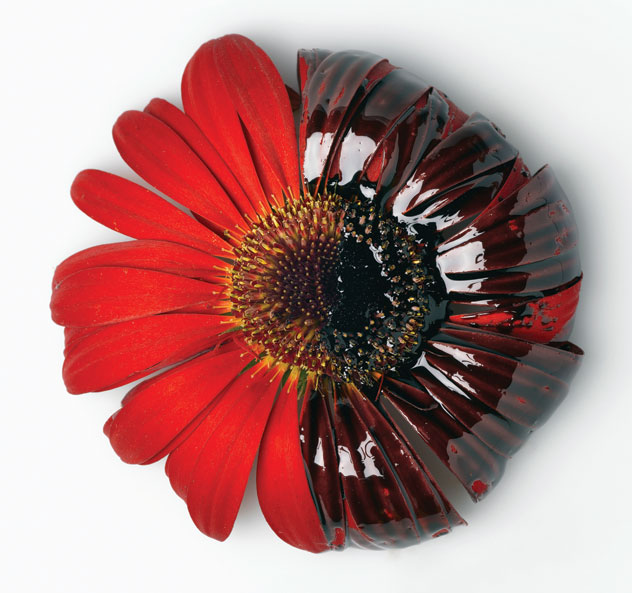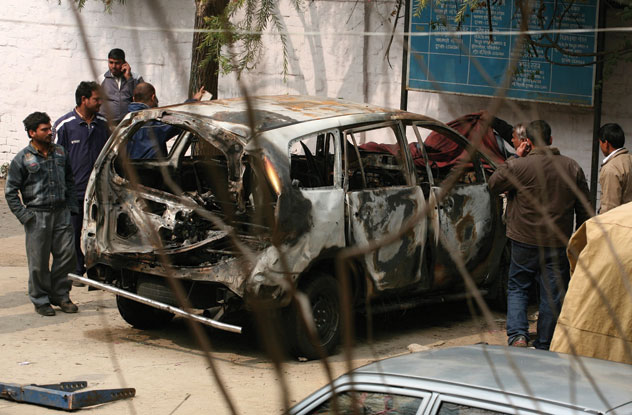POLITICS
Balancing Relations: India, Israel and Iran
India needs to calibrate its relations in a way that suits its interests. The practical approach would be to nurture independent and parallel lines of communication with both Iran and Israel, despite troubled relations between the two nations, writes Siddharth Srivastava.

The recent attack on an Israeli diplomat in New Delhi has been the first instance of a ‘sticky’ bomb being used in a terror attack in India. The unconventional device has been used by insurgent groups in the Middle East especially those gunning against Israel.
While the strike in New Delhi was a result of the complex Arab-Middle East-West Asia politics involving Iran, Palestine, Israel, Saudi Arabia, with India just one of the many playgrounds of retribution, the use of such an instrument of attack raises new security and diplomatic challenges for New Delhi.
On the foreign policy front India will need to balance its deep energy relations with Iran and Saudi Arabia alongside its growing interests with Israel’s defense, agriculture and counter terrorism intelligence sharing.
New Delhi and Tel Aviv have also recently discussed prospects of gas exports from Israel to India. Deepening Indo-Israel relations also has the blessings of America.
Iran, of course remains a tricky nation to do business due to threats of imposition of U.S. and EU sanctions. New Delhi has kept away from the U.S. $7.5 billion Iran-Pakistan-India (IPI) gas pipeline project to keep America happy.
Iran, however, remains India’s second largest supplier of crude oil after Saudi Arabia. Even though Finance Minister Pranab Mukherjee recently said that India will keep its hydrocarbon relations with Iran intact, matters are not so simple.
New Delhi has been facing major payment issues for oil imported from Iran that supplies 12% of India’s oil needs. The situation is forcing Indian refiners to seek crude elsewhere. Earlier this month, Mangalore Refinery and Petrochemicals (MRPL), India’s biggest importer of Iranian crude, bought its first cargo of oil from Libya as it seeks to diversify oil sources.
Last month, MRPL’s head said there are concerns about possible supply disruption due to international sanctions on Iran and the company is keeping all avenues open.
Meanwhile, Indian state owned explorer ONGC has so far kept away from developing the Farsi gas field where it has been granted interests by Tehran, for fear of sanctions.
Private major Reliance Industries Limited (RIL) imports of crude for its refineries in Gujarat have been substantially curtailed to avoid problems in fuel sales to America that have been on the rise.
RIL is also keen to keep Washington happy as it has invested nearly U.S. $3.6 billion in U.S. shale assets and does not want to suffer any U.S. political actions. RIL was warned of penalties by the Obama administration for its business ties with Iran.
Given such a scenario, India will need to calibrate its relations in a way that suits its interests. The practical approach would be to nurture independent and parallel lines of communication with both Iran and Israel, despite troubled relations between the two nations.
Giving in to international pressures would mean shutting out Iran oil that increases dependence on Saudi Arabia that is at loggerheads with Tehran. While Riyadh has already indicated that it is more than happy to oblige, New Delhi’s price negotiating position will be impacted.
In a fiercely competitive market there is no reason to believe that Saudi Arabia may not exploit any monopoly position in India’s energy import basket.

(Above): The van that was wrecked by a ‘sticky’ bomb in New Delhi during a recent attack on an Israeli diplomat.
Managing security is another aspect that will need careful handling.
Terror and rebel networks globally are known to quickly adopt new devices and mechanisms given the ease of communication, first-hand training and information exchange. For example, connections have been found between the Maoist rebels in India and the now decimated LTTE in Sri Lanka.
The use of the ‘sticky’ weapon also raises the issue of pinpointed assassination attempt of important persons. The small explosive device that can fit into the attackers palm can be planted instantly on a car or a person using a magnet or adhesive. It can be set off by remote control or even tossed at any target, with the bomb exploding on impact.
So far Indian security and intelligence agencies have had to deal with terror strikes that have been broadly of two genres – heavily armed jehadi terrorists storming a location to cause loss of life or difficult to detect crude devices or improvised explosive devices (IEDs) planted in crowded places to cause maximum human damage.
More sophisticated explosive material such as RDX has been used in the Mumbai blasts of 1993 and the troubled regions of the North East. But, the instances have gone down. RDX needs to be secretly smuggled into the country and requires expert handling, making the entire logistics prone to detection by security agencies.
IED attacks in trains, temples, markets have caused heavy casualties across cities in India with New Delhi and Mumbai being two prime targets, though strikes have been orchestrated in Varanasi, Hyderabad, Bangalore, Ahmedabad, Surat and Guwahati, among others.
The crude devices, such as a bomb hidden inside a pressure cooker, can be locally assembled and executed by those lowest in hierarchy of terror cells of outfits such as the Pakistan-based Lashkar-e-Toiba. The exercise can also be easily outsourced to petty mercenaries.
The more daring jehadi suicide attacks include Mumbai attacks (2008) and the attempt to storm India’s Parliament in 2001.
The advent of ‘sticky’ bombs raise new challenges for security agencies already under pressure to get their act right. Indian diplomats, the oil and home ministry also have their task cut out.
Balancing Israel and Iran will not be easy.
|